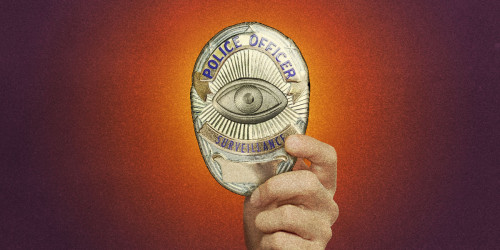The California Supreme Court today granted our petition to review the lawsuit filed by EFF and the ACLU of Southern California that seeks to shine a light on the collection of license plate data by the Los Angeles Police and Sheriff’s Departments. This comes just two days after we filed our latest brief with the court, arguing the highest court should review an earlier, troubling court decision that ruled license plate data could be withheld as “records of law enforcement investigations.” Today’s development gives us a chance to convince the state’s highest court to overturn that ruling and force the police agencies to turn over the data so the privacy risks of this mass data collection can be scrutinized.
The lawsuit, originally filed in 2013, asked for a week’s work of data collected from automated license plate readers (ALPRs) that are mounted on patrol cars and at fixed locations around the city and county of Los Angeles. These cameras capture images of license plates and include the time, date, and location where the vehicle was photographed, potentially creating a detailed picture of a driver’s movements throughout the area. As with all location data, this is particularly sensitive information, which can disclose things like what medical clinic you visit, where you worship, and what kind of political meetings you attend, as well as where your friends and family live. And the law enforcement agencies gather this information on about three million vehicles in Los Angeles each and every week—which means a staggering number of people are affected.
EFF and the ACLU have argued that the public needs to know more about this giant program, and a week’s worth of data would be a good start. But earlier court decisions sided with the police and sheriff’s departments, allowing the records to be hidden away with the excuse that they are “investigative records.” This sets the stage for a dangerous new standard, where police can use automated license plate cameras to collect data on millions of law-abiding individuals—but those same individuals can’t access the very information collected on them. And the implications spread beyond cars and license plate cameras. The lower court ruling could apply to data collected by other forms of surveillance systems, like body cameras and dash cameras and drones—information the public needs to see to assure police accountability.
We’re pleased the California Supreme Court is going to take up these important questions and review this case. Sophisticated surveillance technology like ALPRs should not be used without any oversight.









